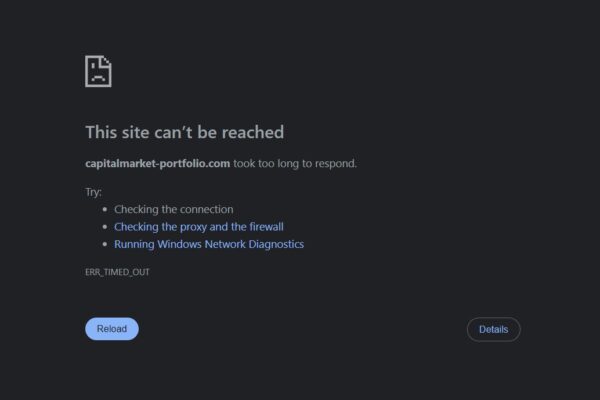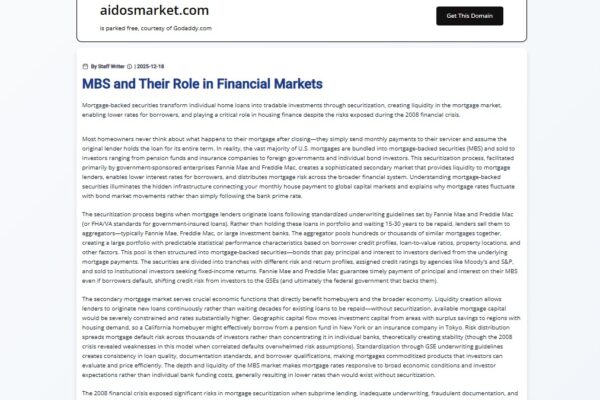Royal-stonegroup.com Scam Review -A Deceptive Broker
Royal-stonegroup.com presents itself with the look and language of a professional investment firm, but a series of structural, technical, and behavioral signals raise significant concerns. Opaque ownership, unclear regulatory footing, persuasive marketing that emphasises rapid gains, and patterns commonly associated with deposit/withdrawal asymmetry together form a risk profile that warrants strong caution.
Opening — the referral that sounded solid until the exit
Imagine a colleague you trust sends a message: “Check Royal Stone Group — they help manage portfolios and their returns look great.” You visit the site: elegant branding, friendly copy about “institutional strategies,” and a form that promises a callback from a “relationship manager.” The onboarding feels personal and immediate. You deposit a conservative amount to test the waters.
At first, everything appears functional — account dashboard, simulated gains, occasional outreach from a helpful rep. But when you try to withdraw, complications arise: new verification steps appear, unexpected processing charges are introduced, and the promised responsiveness fades. That shift — warm welcome, friction at exit — is the storyline behind many problematic platforms. This review explains why Royal-stonegroup.com fits elements of that pattern and what practical red flags to watch for.
1 — Polished presentation, thin provenance
Royal-stonegroup.com uses all the finishings that quickly build trust: a clean, corporate web design, images of trading floors and glass-fronted offices, and confident claims about “tailored wealth solutions.” While a professional presentation is helpful, it is not a substitute for verifiable facts.
Legitimate financial firms publicly disclose basic provenance information: legal company name, registration number, regulator licence (with a way to check it), physical address, and named executives. Where a site focuses on aesthetics but provides scant or vague corporate details, that gap is material: it forces customers to trust marketing without an easy path to verify who they are dealing with.
2 — Ownership and accountability — who is responsible?
A central practical test is whether you can identify the legal entity behind the product. For Royal-stonegroup.com, common issues that increase risk include:
-
Minimal or generic company disclosure on the website.
-
Domain registration information that is privacy-protected, making it hard to trace the operator.
-
Contact addresses that are generic or point to virtual office providers rather than verifiable headquarters.
When ownership is obscured, it’s not merely an informational inconvenience — it raises important questions about where legal liability sits and how disputes would be handled. A platform that is difficult to pin down on basic identity matters makes accountability and enforcement significantly harder.
3 — Regulation — the missing guardrails
A key trust anchor in financial services is regulatory oversight. Licensed brokers and wealth managers display the regulator’s name and licence numbers so users can confirm credentials. Regulation ensures minimum standards such as client fund segregation, capital adequacy, audits, and dispute procedures.
Royal-stonegroup.com’s public materials do not prominently provide clear, checkable licence details. Marketing language mentioning “compliance” or “global partners” without an explicit regulator and licence number is insufficient. Without verifiable regulatory supervision, the usual external protections and reporting requirements that consumers rely on are absent — a highly relevant factor in assessing risk.
4 — Sales and onboarding — the pressure funnel
A recurring pattern among high-risk platforms is a sales funnel optimized for rapid deposits:
-
Quick sign-up with immediate human outreach.
-
Assignment of a “relationship manager” or “account specialist” who encourages larger deposits.
-
Time-sensitive offers and VIP tiers framed as exclusive access.
If Royal-stonegroup.com emphasizes urgency, exclusive tiers, or frequent outreach to upgrade accounts, those behaviors are practical warning signs. High-pressure sales can be used to accelerate capital inflows before clients can fully verify credentials or test withdrawal mechanics.
5 — Marketing promises vs. verifiable evidence
The site often markets attractive outcomes — optimized returns, institutional grade strategies, and “consistent performance.” But marketing claims must be backed by evidence to be credible. Useful, verifiable evidence includes:
-
Third-party audits or attestation of past performance.
-
Exportable trade logs that reconcile with bank or exchange receipts.
-
Detailed methodology describing risk controls, drawdowns, and stress testing.
When a platform shows only polished dashboards and testimonial blurbs without these kinds of corroborating documents, those visuals remain persuasive marketing rather than proof of durable, liquid performance.
6 — Deposit vs. withdrawal behaviour — the operational litmus test
One of the simplest, most revealing checks is how a platform treats money going in versus money coming out:
-
Many risky models accept deposits easily through multiple channels (cards, transfers, crypto).
-
Early small withdrawals may be honoured to build trust.
-
Larger withdrawal requests frequently trigger extra verification steps, surprise fees, or long processing delays.
If Royal-stonegroup.com allows deposits without friction but places obstacles before withdrawals, that asymmetry indicates the system is structured to favor intake over payout — a classic and dangerous operational profile.
7 — Technical footprint & domain signals
Technical indicators provide useful context about longevity and intent:
-
Domain age: newly registered or frequently changed domains suggest short track records.
-
WHOIS privacy: masked ownership obscures accountability.
-
Hosting overlaps: shared hosting with other short-lived finance sites implies the use of template site rollouts.
-
Low external visibility: little organic traffic or few independent reviews reduces the community oversight that often checks bad behavior.
These technical clues do not confirm misconduct alone, but they alter the risk calculation when combined with the other warning signs listed above.
8 — Terms & conditions — read the small print
Problem platforms often include contractual language that grants them wide unilateral powers:
-
Clauses allowing account freezes or unilateral changes to fees and terms.
-
Vague “processing” or “release” fees that can appear only when withdrawals are requested.
-
Bonus terms that demand unrealistic trading volume before funds can be released.
If Royal-stonegroup.com’s legal terms include such broad operator powers and ambiguous fee mechanics, those clauses effectively shift the balance of risk to the client at the moment of withdrawal.
9 — Testimonials and social proof — curated not corroborated
Testimonials can be convincing, but their value depends on independent corroboration. Effective evidence would include dated, traceable case studies or long-running forum discussions from real clients. When the only “proof” appears on the company site as testimonials and screenshots, treat it as marketing. Genuine platforms usually have a mix of on-site and off-site, independently verifiable user experiences.
10 — Quick red-flag checklist
Use this checklist when evaluating Royal-stonegroup.com:
-
Is the legal entity and company registration clearly published and verifiable?
-
Can you confirm a regulator licence in a recognised jurisdiction?
-
Are performance claims backed by exportable trade logs or third-party audits?
-
Do withdrawals process reliably without surprise fees or new conditions?
-
Are account managers pushing for larger deposits or VIP upgrades quickly?
-
Is domain ownership masked in WHOIS records?
-
Are testimonials corroborated externally on independent platforms?
Multiple “no” answers should substantially increase your caution.
Analytical conclusion
Royal-stonegroup.com offers the polished trappings of a modern investment service but lacks several core trust pillars that separate genuine firms from high-risk operations: transparent ownership, verifiable regulation, auditable performance evidence, and straightforward withdrawal mechanics. The use of persuasive marketing, potential upsell pressure, and technical opacity aligns with a pattern that has produced adverse outcomes in many prior cases.
This review is a risk-based analysis rather than a legal determination. For readers prioritizing capital protection and accountability, the platform’s public profile warrants strong caution. If you consider engaging with any service presenting these traits, insist on verifiable documentation and test withdrawal procedures with minimal exposure before proceeding.
Report Royal-stonegroup.com Scam and Recover Your Funds
If you have lost money to Royal-stonegroup.com Scam, it’s important to take action immediately. Report the scam to Jayen-consulting.com, a trusted platform that assists victims in recovering their stolen funds. The sooner you act, the better your chances of reclaiming your money and holding these fraudsters accountable.
Scam brokers like Royal-stonegroup.com continue to target unsuspecting investors. Stay informed, avoid unregulated platforms, and report scams to protect yourself and others from financial fraud.
Stay smart. Stay safe.






